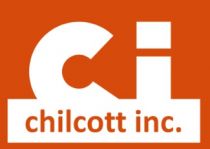New Report Indicates Revising CMS Policy on Biosimilars Could Save $11.4 Billion On Medicines Over 10 Years
WASHINGTON, Sept. 19, 2017 /PRNewswire/ -- Today, the Association for Accessible Medicines (AAM) and its Biosimilars Council released an analysis finding that if the Centers for Medicare & Medicaid Services (CMS) were to revise its current reimbursement policy for biosimilar medicines, the federal government could save $11.4 billion on medicines over the next 10 years.
"The Fiscal Implications of Discrete Codes for Biosimilars" by The Moran Company (TMC) for AAM and the Council, analyzed the budgetary implications of a reversal of the current Centers for Medicare & Medicaid Services (CMS) policy in line with traditional CBO "scoring" methods. CMS currently groups all biosimilars of a reference biologic under a single billing code and payment rate. A variety of stakeholders have raised concerns that this policy undermines patient access to affordable biosimilar medicines and stifles the creation of a robust biosimilars market. Consequently, the agency is assessing the effects of the current coding and payment policy for biosimilars and has solicited comments on their Revisions to Payment Policies under the Physician Fee Schedule and Other Revisions to Part B for CY 2018 proposed rule (CMS-1676-P).
Highlighting the need to revise the policy, the report finds that CMS' current reimbursement policy could produce short term savings, but at the expense of larger, long-term savings for Medicare. It argues that the current policy would cause biosimilars manufacturers to exit the market over time or decide not to enter at all, ultimately leading to higher costs for patients. The Biosimilars Council has urged CMS to revisit their payment and coding policy and provide each non-interchangeable biosimilar for a given reference biologic with a unique billing code and payment rate.
"Shifting biosimilar reimbursement to unique codes increases patient access to more affordable, life-saving medicine and lowers prescription drug spending. This policy is critical to the development of a thriving biosimilars medicine market," said Christine Simmon, Executive Director of the Biosimilars Council and Senior Vice President of Policy & Strategic Alliances at AAM. "This new report highlights the significant cost savings possible for both patients and payors if CMS implements this recommendation."
About AAM
AAM is driven by the belief that access to safe, quality, effective medicine has a tremendous impact on a person's life and the world around them. Generic and biosimilar medicines improve people's lives, improving society and the economy in turn. AAM represents the manufacturers and distributors of finished generic pharmaceuticals and biosimilars, manufacturers and distributors of bulk pharmaceutical chemicals, and suppliers of other goods and services to the generic industry. Generic pharmaceuticals are 89 percent of prescriptions dispensed in the U.S. but only 27 percent of total drug spending. Additional information is available at www.accessiblemeds.org.
About the Biosimilars Council
The Biosimilars Council, a division of the Association for Accessible Medicines (AAM), works to ensure a positive environment for patient access to biosimilar medicines. The Biosimilars Council is a leading source for information about the safety and efficacy of more affordable alternatives to costly brand biologic medicines. Areas of focus include public and health expert education, strategic partnerships, government affairs, legal affairs and regulatory policy. More information is available at www.biosimilarscouncil.org.
Media Contact:
Rachel Schwartz
rachel.schwartz@accessiblemeds.org
View original content:http://www.prnewswire.com/news-releases/new-report-indicates-revising-cms-policy-on-biosimilars-could-save-114-billion-on-medicines-over-10-years-300522446.html
SOURCE Association for Accessible Medicines (AAM) and its Biosimilars Council




